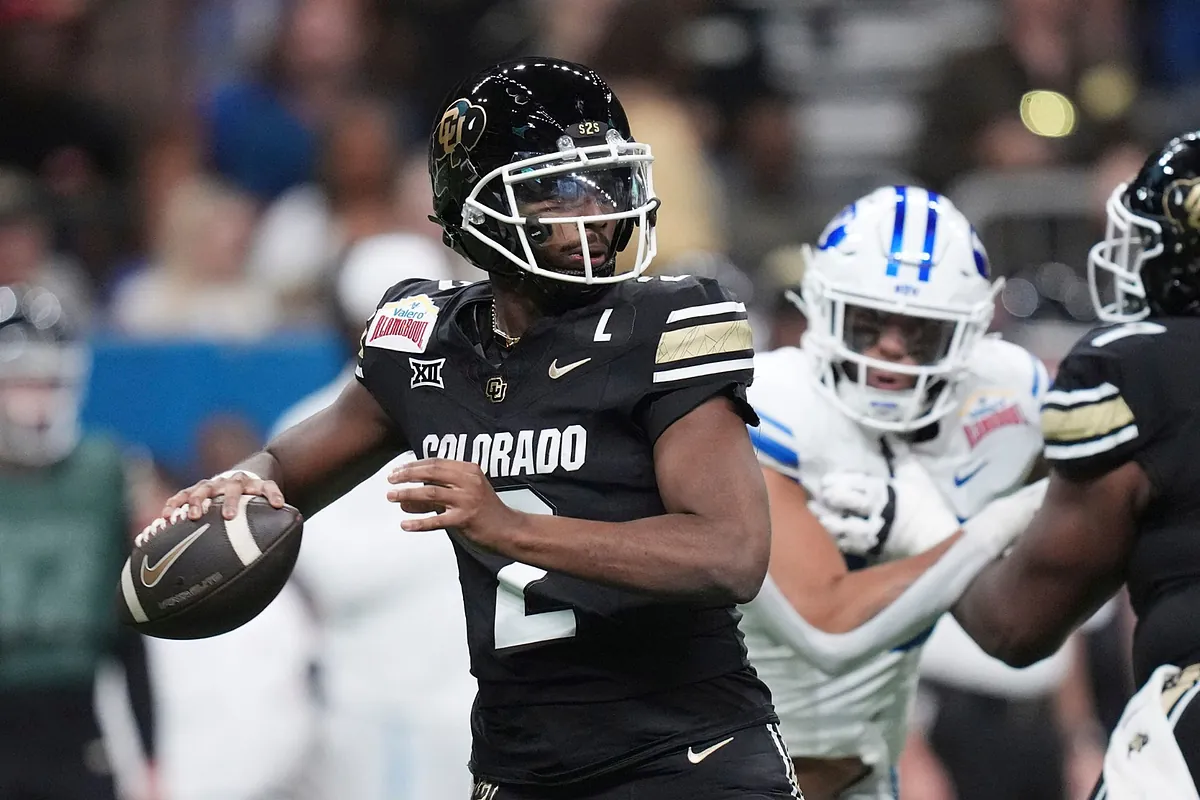

Although the Miami Dolphins aren’t urgently in need of a new starting quarterback, some experts have begun speculating about the possibility of the team seeking a replacement forTua Tagovailoa in the 2025 NFL Draft. Despite Tua still holding the starting quarterback position, ESPN’s Adam Schefter mentioned on the Pat McAfee Show that the Dolphins, along with the Cardinals and Rams, could be surprise teams willing to draft Shedeur Sanders, the quarterback from the University of Colorado, in the upcoming draft.
While this idea may seem surprising, it’s important to note that the Dolphins’ situation isn’t as simple as it might seem. As the draft approaches, the question arises whether there’s a legitimate case for Miami to select Sanders a prospect who has generated attention for his potential, but who may not offer an immediate solution to the franchise’s needs.
A special player! Travis Hunter shows toughness catching fast dimes from Shedeur Sanders
The need to address other areas
Miami faces several structural challenges across their roster beyond just the quarterback position. Gaps in the interior defensive line, cornerback, and the need for improvement on the offensive tackle front are all priority areas for strengthening. Although the Dolphins’ offense has been inconsistent in recent seasons, a rookie quarterback no matter how talented doesn’t seem to be the solution to all of these issues. The team holds three picks within the top 100, limiting their ability to secure quality prospects to fill these key positions.
Moreover, the Dolphins are focused on winning now. With the pressure to end the longest playoff drought in the league, general manager Chris Grier and head coach Mike McDaniel have little margin for error. Investing a high pick in a rookie quarterback could divert attention and resources from more immediate concerns, making it more challenging to build a competitive team in the short term.
What can Shedeur Sanders really offer?
While Shedeur Sanders has shown flashes of talent at Colorado, his transition to the NFL is not without its doubts. Despite his college success, Sanders isn’t a quarterback known for his exceptional physical traits, especially when compared to other top prospects in the league. For example, his release time is considerably slower than that of many other top quarterback prospects, which could be a significant problem for a Dolphins offense that relies on quick ball execution.
The biggest challenge for Sanders isn’t just his throwing ability but how he would adapt to a Miami offensive line that, while improving, remains a concern. If Sanders can’t release the ball quickly, he could find himself in a difficult situation behind a shaky offensive line. Rather than improving the offense, drafting Sanders might worsen the situation and place even more pressure on a team already struggling to find consistency.
This news was originally published on this post .





Be the first to leave a comment